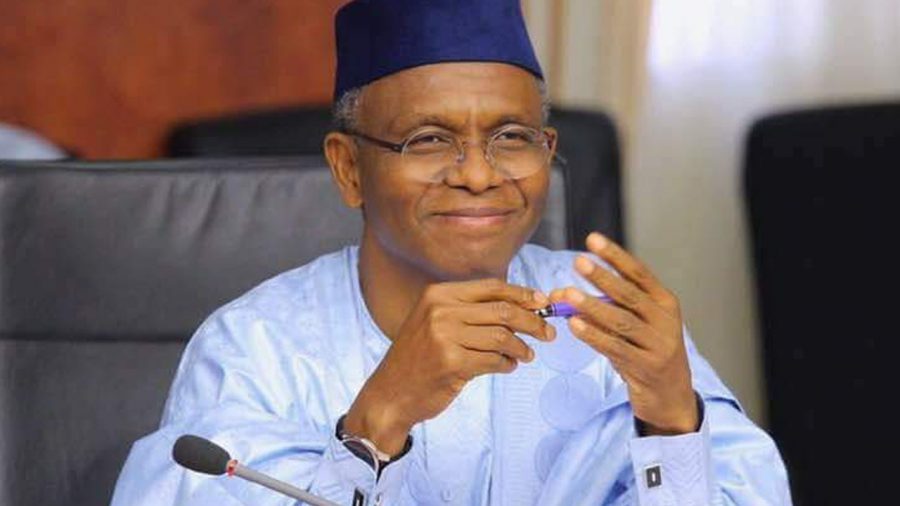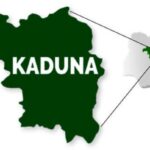In this election season, people quickly recall elected politicians’ virtues. They also pay attention and respond to those who contributed to their current deprivations so they can pay them back at the polling unit. Even elected politicians practice it. For example, El-Rufai never misses the opportunity to attack and curse three former senators – Danjuma Lah, Shehu Sani and Suleiman Hunkuyi. The reason for his vile insults is that they blocked Kaduna State from getting the biggest loan in the history of sub-national governments in Nigeria – a $350 million World Bank loan.
Without a doubt, posterity will judge them. Many will recall that these senators played a significant role in making the 8th Senate, under Bukola Saraki, reject the application based on the recommendation of the Senate Committee on Local and Foreign Debts and the three senators from Kaduna.
El-Rufai declared he would keep pursuing the approval despite Senate’s objection. His persistence ought to have raised eyebrows. In one of his press conferences in October 2017, El-Rufai stated that part of the loan would be spent on replacing the 22,000 teachers he sacked then. In November 2017, the then Finance Commissioner – Suleiman Kwari – announced that the loan would finance infrastructural development, such as the building and rehabilitating of schools, hospitals, and roads.
Eventually, the 9th Senate – under Ahmad Lawan – approved the loan. The two new Senators – Uba Sani and Suleiman Kwari – who replaced Sani and Hunkuyi at the national assembly played a role in this feat. But before the approval, in February 2020, the Chief of Staff to the Governor – Sani Dattijo – made the headlines for his inability to defend the loan request at the Senate Committee on Foreign and Local Debts. It was not a good show.
Given the nature of the large sum of the loan and its catchy title, we dug deeper into the loan document on the World Bank website. It is called Kaduna State Economic Transformation Programme-For-Results, and unexpectedly, some dodgy points caught our eyes.
According to the website, the loan commitments were made in June 2017, and $176 million were disbursed in June 2019 before Senate approval in 2020. The final disbursements were made in December 2021. The Fiscal Responsibility Act (FRA) of 2007 stipulates all loans are subject to the approval of the National Assembly. One wonders why this one was exempted. World Bank is yet to respond to our FOI request since August 2022, and we were told that the Senate would not have the records on the loan details.
If the state had followed the FRA law, they would have negotiated a better interest rate than the 3.7 per cent and 2.2 per cent for the loan tranches as rates dropped further in 2020 due to the pandemic. For example, the $3.4b IMF loan to Nigeria was approved at one per cent.
On the loan agreement, World Bank stipulated that the state must spend 78 per cent of the loan to cover recurrent expenditures, while 22% can be spent on capital expenditures. On top of that, the capital expenditure is restricted to only soft investments, as against hard investments (like infrastructure). The agreement is against the FRA 2007. What were the Senators thinking when they approved the loan?
In retrospect, the agreement is a two-edged sword. If the loan was used as stipulated by World Bank, that means there is a breach of FRA (2007), and it is a high crime. If the loan was misapplied, as stated by El-Rufai, Kwari and Uba Sani, it is equally a high crime that should require the State Assembly to scrutinise further. Therefore, we posit that the government does not like discussing the $350 million World Bank loan because it will open a can of worms.
The DMO records also show more loans have been taken. According to the latest records, Kaduna has N87 billion in domestic debt and $587 million in external debt. Converting the loan at the official rate of N455, Kaduna has a debt of N354 billion, making it the most indebted state in the country after Lagos. On a macro level, and based on recent data, the economic outcome of these loans is not evident. It made me agree with President Buhari’s assertion, albeit reluctantly, that state governors are to be blamed for people’s poor living conditions. They are meant to provide certain aspects of healthcare, education, water, and housing, among many other basics.
The November multidimensional poverty index report shows Kaduna is leading in poverty with eight million multi-dimensionally poor people, including children who are out of school, only behind Kano with 10.5 million. These millions lack healthcare, nutrition, water, education, sanitation, housing, and many more. Unemployment is 44.3 per cent – so much for a $350 million World Bank loan. The unbalanced tax system is taking so much from very few people who can pay to raise more internally generated revenue, which is unsustainable. The real problem will start when the loan moratorium ends.
Like Buhari, El-Rufai will be hoping to leave some people to continue this unfinished business as the hope of leaving a legacy is gone. Uba Sani is rewarded with the APC gubernatorial candidate, while Dattijo and Kwari aim for the senatorial seats. At the BBC Hausa debate, the media-shy Sani disappointed his followers as he could not communicate eloquently in his native tongue. Some think it was because he stood next to the articulated Isa Ashiru.
One thing for sure is that the next governor will need all the available help – and prayers too.

 Join Daily Trust WhatsApp Community For Quick Access To News and Happenings Around You.
Join Daily Trust WhatsApp Community For Quick Access To News and Happenings Around You.


